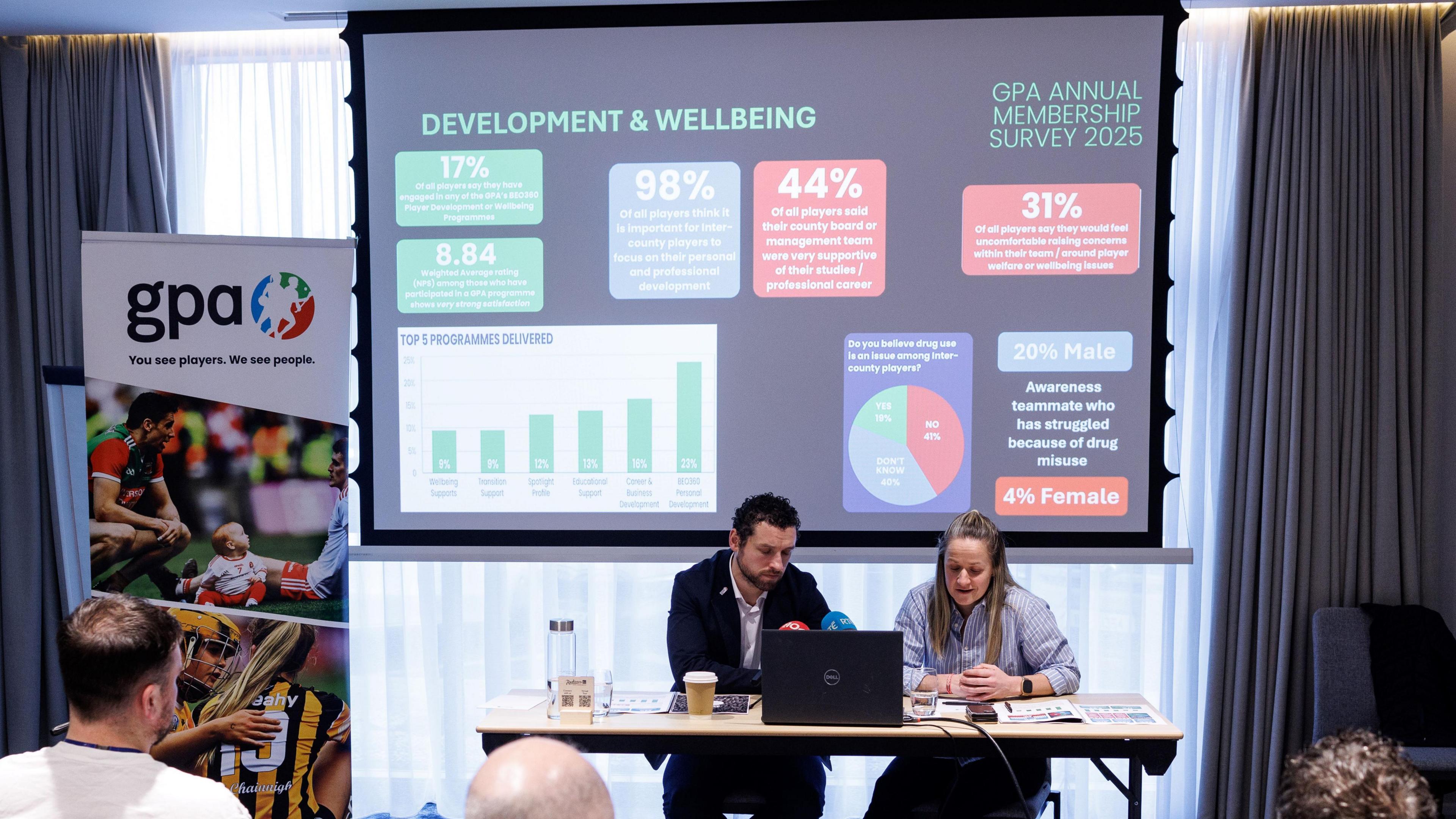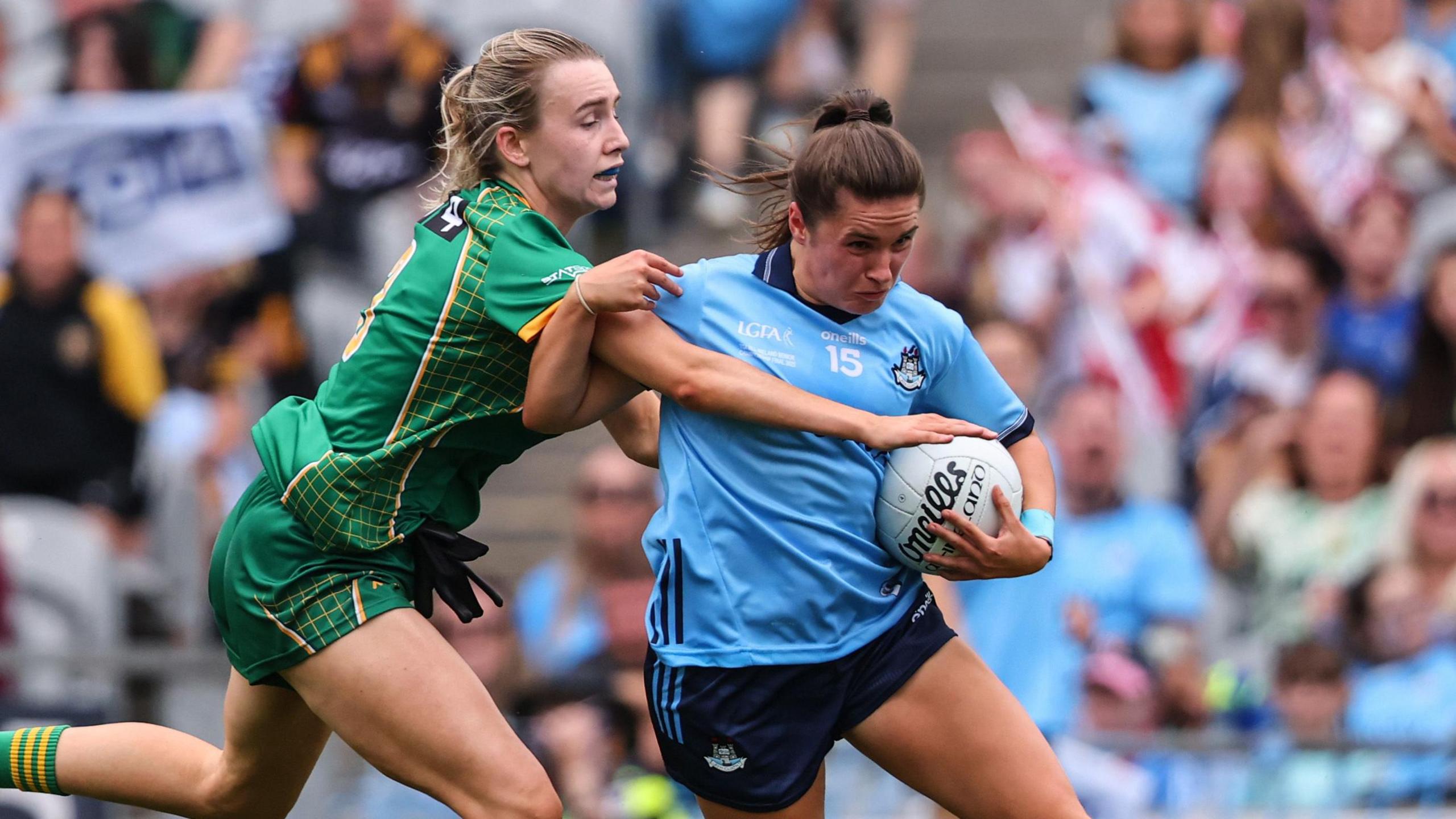Most male inter-county players support manager payments

The Gaelic Players Association has published its 2025 membership survey
- Published
The Gaelic Players Association (GPA)'s annual membership survey has found that 75% of male members believe inter-county managers should receive payment 'over and above expenses'.
The broad support for the payment of inter-county managers continued with 41% of the GPA's male members believing that managers should receive a fixed stipend payment and a further 34% believing they should be contracted with a full annual salary.
This topic has proved controversial and may create a schism within the GAA, as it continues to debate the amateur status of Gaelic Games.
In the survey, 64% of male players said they are happy with the current amateur status, but that contentment drops to 58% among players competing at Sam Maguire level.
Is the current inter-county season too long?
In the GPA's latest survey, to which 3,676 players responded (2,320 male and 1,356 female), 92% believe that a maximum of seven months should be reserved in the calendar for inter-county action.
That time would run from the first collective training session of the year until the last game of the season.
That window will not be possible for the 2026 season as 21 November is the date for a return to inter-county training to facilitate the return of the pre-season provincial competitions in January.
The inter-county season for 2026 will run for nine months. The All-Ireland Hurling final is scheduled for 19 July, with the football decider one week later on 26 July.
Despite all of this, 89% of GPA members agree with the split-season model that was implemented in 2022 that sees both All-Ireland deciders take place in July, concluding before the club championship season gets underway.
However, 87% of members agree that there should be a mandated off-season for inter-county players, with 83% saying they had less than two weeks to prepare between the end of their county season and the beginning of their club campaign.
New rules a success but ladies want change

92% of female GPA members believe that playing rules need to be reviewed
The adaptation of the new playing rules in the men's game for the 2025 season and beyond have received widespread support, with 94% of male members stating that their playing experience has improved through the new rules.
When asked about their support for the specific rules introduced this season, male players expressed majority support for solo and go (88% support), the two-point arc (73% support), three players in attacking half (61% support) and the advanced mark (59% support).
After the successful implementation of the new rules in the men's game, female players are now looking for change, with 92% believing that the rules need to be reviewed.
In the ladies game, 78% believe there should be more physicality, while 97% say there should be some incidental contact allowed in the tackle.
What are the GPA saying?
"What is clear from the GPA Annual Player Survey is that players face significant demands due to their inter-county commitments and everyone within Gaelic games has a duty to ensure their welfare is protected," said GPA CEO Tom Parsons.
"If our players are telling us that a seven-month inter-county season is the maximum they can sustainably commit to, we need to listen – or face the consequences of player-drain and a threat to the amateur status of our games.
"This is not about money. A seven-month season would reduce the demands on players and also lower costs."
Parsons added the GPA's mission is to "protect and empower the elite amateur player in an increasingly professional environment".
"That means ensuring proper standards, fair reimbursement of out-of-pocket costs, genuine rest periods, and opportunities to grow both on and off the field," the former Mayo footballer added.
"As CEO, I am committed to ensuring that investment in players — in their welfare, equality, and development — remains the most powerful way for the GAA and the Gaelic Games family to recognise and support these players. Because when players thrive, Gaelic Games thrive."